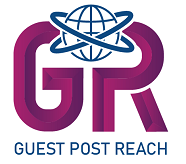Table of Contents
What Is a Personal Loan?
A personal loan is an unsecured credit that a financial institution grants you. Based on your employment history, income level, repayment capacity, credit history, and profession, you’re judged whether you’re eligible for this loan. Also known as a consumer or multi-purpose loan, it’s meant to be given to curb your immediate and planned needs. Whether a medical emergency or a wedding, a personal loan will aid your financial crisis.What Is a Business Loan?
A business loan can be availed by business owners to meet their planned or urgent financial needs. Before setting a business, you need enough capital to fund start-up expenses or expansion expenses. For this, you can take financial assistance from financial institutions. A few business owners use this financial aid to pay wages and salaries. While some use them for projects, inventories or office supplies.Are You Eligible for Applying a Personal and Business Loan?
Before applying to either of these loans, you’ve to follow the below eligibility criteria:
|
What Are the Documents Required for Personal and Business Loan?
You’ve to tick the necessities like KYC documents, know what is KYC before applying for a personal or a business loan. Here’s what you’ll need:| Personal Loan | Business Loan |
| You need KYC documents like Aadhar Card, PAN card. | You need KYC documents. |
| Your ID card, salary slips and bank account statement. | Additionally passport size photograph, bank account statement and business proof. Latest ITR with balance sheet, income and profit and loss a/c of the last 2 years. |
| Audited financials of the last 3 years. | |
| Documents like Sole Proprietorship Declaration, Memorandum of Association/Article of Association certificate. |

